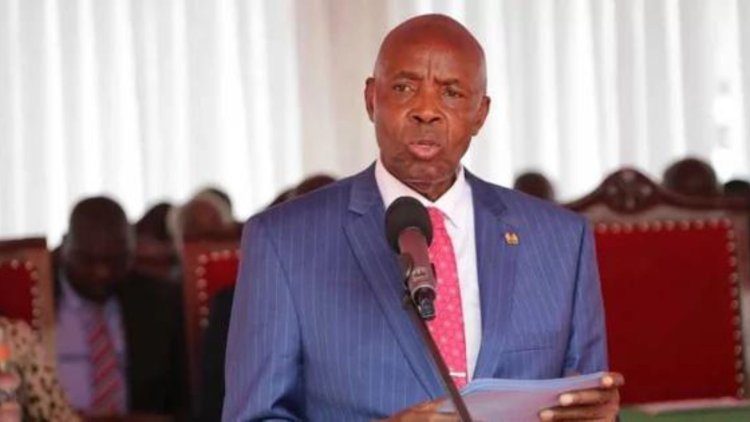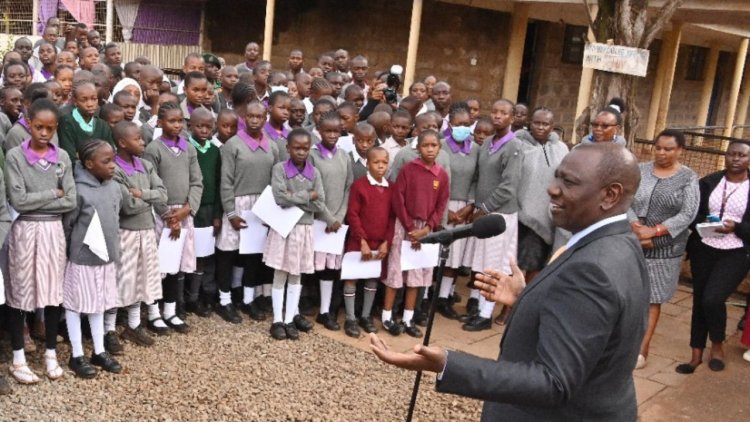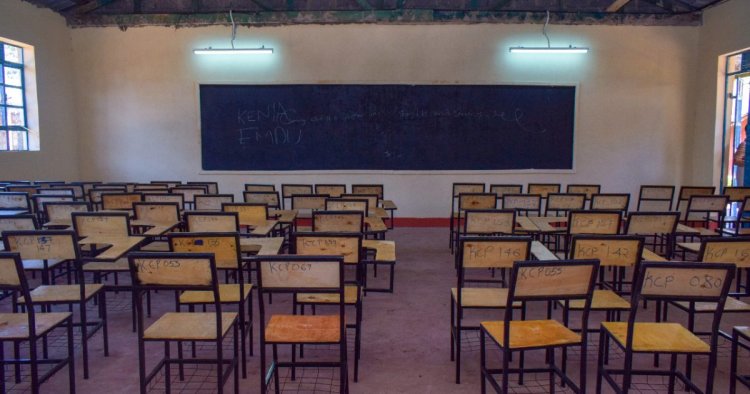Subjects, Renaming, Expulsions- Inside New Junior Secondary School Guidelines
Among the directives announced include the revision of primary schools’ names in the country as JSS is adopted...

The Ministry of Education has released new guidelines touching on learners in Junior Secondary Schools (JSS) ahead of their reporting on Monday, January 30.
According to the Guidelines for the Implementation of Secondary School Education released on Monday, January 23, among the directives announced include the revision of primary schools’ names in the country as JSS is adopted under the Competency-Based Curriculum (CBC).
The Ministry stated that comprehensive schools – those with both primary and junior secondary – shall adopt the name of the primary school in which they are domiciled, “except in special circumstances”.
Take for example a school called Bingwa Primary School. Under the new guidelines, it would be called Bingwa School (Primary and JSS).

“For the purpose of the Bank accounts, the Primary School and Junior Secondary Schools shall have separate Bank Accounts,” the ministry says.
In addition, the JSS students will have different pairs of uniforms from their Primary School counterparts. The JSS leadership has been tasked with determining the colour of the uniforms including branding and unique feature identification.
“At a minimum, one pair of uniform is recommended per learner. The uniform shall be the responsibility of parents and no school shall direct parents where to purchase the uniform,” the ministry said.
“No JSS learners shall be excluded for failure to afford a school uniform and the JSS uniform shall be sensitive to the cultural and religious values of the respective communities. Special consideration SHALL be made in view of different climatic conditions,” it added.
Education Cabinet Secretary (CS) Ezekiel Machogu previously stated that students transitioning to JSS will not be required to pay any school fees as the government has already set aside Ksh15,000 for each of the over 1 million Grade 6 pupils who sat their Kenya Primary School Education Assessment examinations (KPSEA) in November 2022.
JSS students will be taking 12 core subjects and one or two optional subjects. The core subjects are English, Kiswahili or KSL, Mathematics, Integrated Science, Health Education, Pre-technical and Pre-career education, Social Studies, Religious Education (CRE, IRE or HRE), Business Studies, Agriculture, Life skills, Sports and Physical Education.
The optional subjects comprise Visual Arts, Performing Arts, Home Science, Computer Science, Foreign Languages (German, French or Mandarin) Arabic, Kenyan Sign Language and Indigenous Language.
In the meantime, learners at the Pre-Vocational level will be assessed in 9 subjects; Communication, Social and Literacy Skills; Daily Living Skills; Mathematics Activities; Music and Movement; Religious Education; Christian Religious Education; Hindu Religious Education; Islamic Religious Education; Physical and Health Education; Hygiene, Nutrition and Safety; Environmental Activities, and Social Studies.
Furthermore, the guidelines have proposed suspensions and expulsions as punishments for learners in Grades 7, 8 and 9 who would be held individually responsible for participating in mass indiscipline as prescribed in the Basic Education Regulations 2015.
"The head of the institution shall issue the learner, with a suspension letter addressed to the parent or guardian indicating the nature of the indiscipline and specifying the date the learner, accompanied by the parent or guardian, is required to appear before the Board of Management of the institution," Basic Education Regulations, 2015, read in part.
"Learners shall be deemed to have participated in mass indiscipline in the institution if they jointly take part in an unlawful demonstration, a boycott of classes or meals, the destruction of school property and invasion of other institutions, shopping centres or homesteads."







